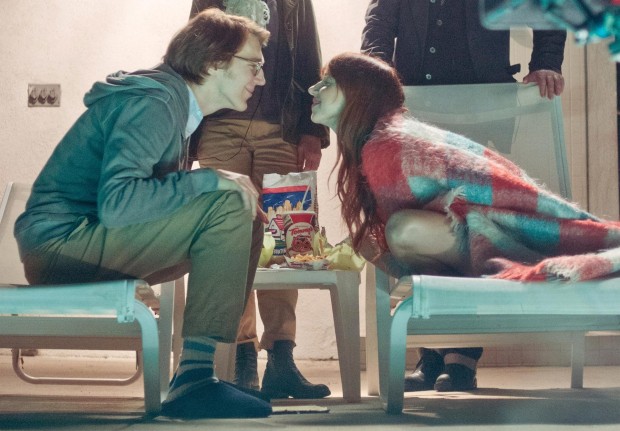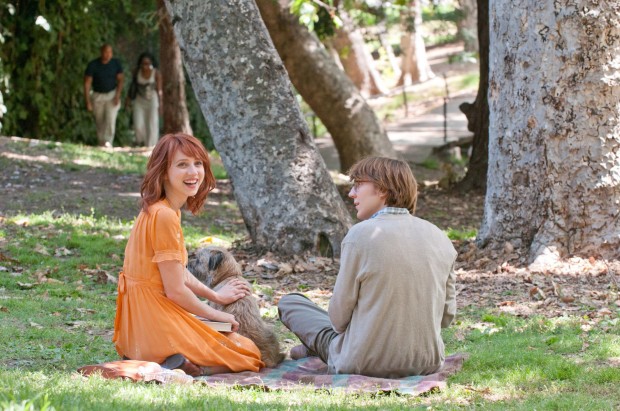In the vein of Jonathan Dayton and Valerie Faris‘s previous indie hit, the much beloved Little Miss Sunshine, their new film Ruby Sparks isn’t exactly what one would expect, considering the way it’s been sold. As funny as both of their films may be, there is a surprising amount of tragedy at their core. Ruby Sparks, like Little Miss Sunshine, is a sad and offbeat story of failure.
Calvin, played by Paul Dano — who’s once again portraying a struggling writer this year (check out this year’s overlooked Being Flynn) — is on his way of becoming a one-hit wonder. In his teenage years, Calvin wrote a single book, a novel which earned him a huge following and grand comparisons to J.D. Salinger. After years of struggle and nothing but blank on the page, our young neurotic protagonist comes upon a story, one that becomes all too real.

Calvin, like any lonely and desperate and slightly creepy young man, has a recurring dream girl. This dream girl, named Ruby (Zoe Kazan, also the film’s co-writer), is that pretty girl who gets Calvin to finally come out of his skin. In short: she’s the ultimate male nerd fantasy, an unmistakable manic pixie dream girl. Calvin becomes so infatuated with his creation she soon (and thankfully unexplainably) becomes real. One morning he wakes up and there she is, the girl of his dreams, literally. However, once she leaves his mind and story, drama arises. In the words of Lord of War‘s Yuri Orlov, “That’s the problem with dream girls: they have a habit of becoming real.” Calvin, once past his disappointment and confusion, comes to learn that lesson.
It isn’t an easy journey to get there, though, the film taking some surprisingly dark turns on the way. While Dayton and Faris’s “romantic comedy” is more laugh-driven than heart-reaching, the latter ends up overshadowing the former. There’s one particularly brutal scene towards the end which comes out of nowhere, and it shows Calvin dropping to his lowest level in the film, in what is, by all means, an irredeemable way.

There is nothing to like about Calvin. It is easy to empathize with his artistic struggles, but Dano, Dayton, Faris and Kazan never sugarcoat who this young man is: a condescending, lonely and mildly disturbed artist. Only towards the end do they attempt to give him redemption, and it’s the film’s greatest fumble. No matter how much Calvin recognizes the pain he causes towards Ruby in the film, he’s not a character who deserves the redemption and ending he gets.
When Ruby Sparks lets Calvin play at his worst, the film goes beyond your average love story. The cuter aspects are funny and warm like Little Miss Sunshine, but when Dayton and Faris show the pain and sadness failure can cause to someone is when the film is at its most rewarding. Thankfully, they allow for that to happen quite frequently.
Ruby Sparks is now in limited release.

